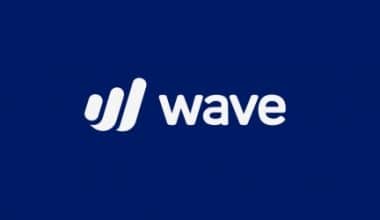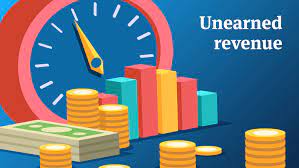Wondering what an accounts payable job is all about? In this article, you will learn about the job description and examples of accounts payable resumes to help you land your next job.
Accounts Payable professionals are expected to be able to handle a high volume of data, pay strong attention to detail, and be in daily communication with employers and vendors. They must also be able to apply accounting principles and handle work that is analytical, evaluative, and advisory in nature.
The Accounts Payable department is responsible for the financial stability of a company. They are in charge of ensuring that all debts are paid and that the company has enough money to cover its expenses. Accounts Payable is typically a distinct department in large corporations, however, with smaller businesses, the responsibilities of Accounts Receivable and Payable are regularly combined.
What are the three basic functions of Accounts Payable?
Although the size of a business ultimately determines the role accounts payable plays, most businesses can benefit from having accounts payable specialists or Having a part-time contractor come in to do the work weekly or biweekly allows the business to focus on other aspects. Accounts payable fulfill at least three basic functions in addition to paying bills. These functions could include: creating and tracking budgets; issuing invoices; and managing payments. Below are the three basic functions of an accounts payable;
#1. Issuing internal In house payments
Accounts Payable often work in-house to distribute internal repayments, control and manage petty cash, and control the distribution of sales tax exemption certificates. Internal reimbursement expenses conform to company audit procedures that require employees to submit a manual journal report, receipts, or both to establish reimbursement claims.
Petty cash is generally used for minor expenses such as various postage costs, office supplies, or lunches during a company meeting. Accounts Payable often issue sales tax exemption certificates that they issue to department heads to ensure that legitimate business purchases do not include sales tax expenses.
#2. Processing Suppliers Payments
One of the main functions of accounts payable is processing a company’s incoming invoices and payments. This is one of the functions that come to mind first when you think of the duties of Accounts Payable. Accounts Payable professionals keep track of suppliers’ contact information, payment terms, and IRS W-9 information in a computer database. This allows them to easily find and contact the suppliers when necessary.
Internal control is what determines whether the purchasing process begins with a pre-approved purchase order or whether post-purchase commitments confirm purchases. Supplier payments also include month-end analysis reports that show business owners and management how much the company currently owes suppliers.
#3. Manage Business Travel Expenses
In large companies or companies where the owner and other employees (eg, salespeople) travel frequently, accounts payable functions could include trip management responsibilities like pre-booking airline tickets, rental cars, and hotels. If internal controls permit travel advances, Accounts Payable processes applications and distribute the travel funds. Upon the traveler’s return, Payment Engagements is then responsible for reconciling monies paid out with monies actually spent or processing travel refund requests.
Other Accounting Functions
Accounts Payable also works to reduce costs by looking for details that can save the company money, such as paying an invoice during a cash discount period that many suppliers allow. The account payable clerk is often the first point of contact between the business and supplier representatives. Therefore, building and maintaining good relationships is often an employee obligation. Strong relationships can benefit a company when working with suppliers. For example, good relationships can lead to more favorable credit terms during a seasonal sales slump.
Accounts Payable specialists sometimes review invoices before paying them to ensure they are correct. The accounts payable clerk can call the merchant if the invoice is higher than normal, or contact an internal employee if it turns out that the employee did not choose the cheapest option or did not seek out a company-approved supplier during the purchase on behalf of the company.
What are key skills for Accounts Payable?
Although a degree is not required for an accounts payable position, it is necessary to have a working knowledge of accounting and bookkeeping fundamentals. For a job in accounts payable, a degree in the following fields would be beneficial:
- Economics or Finance
- Business Administration
- Accounting
Other skills required include;
- Proficiency with the compilation of expense reports for data entry.
- Skilled in Microsoft Excel.
- Knowledge of accounting principles and Accounts Payable processes.
- Familiarity with purchase order processes.
- Ability to work independently and take initiative.
An Accounts Payable job description should include specific standards for data entry and attention to detail. It is essential for employees to constantly be able to engage in a professional manner because they will be communicating with employers and vendors on a daily basis.
Accounts Payable Job Description Examples
If you are looking to hire a professional in accounts payable, the job description should look like this:
Job Summary
We are seeking a qualified Accounts Payable Clerk to process all invoices received for payment and to handle the timely, accurate, and efficient payment of all debtors.
Responsibilities
- Processing remittances in accordance with financial policies and regulations
- Carry out regular financial transactions, such as validating, separating, and recording accounts payable information.
- To make sure that all bills and payments are accounted for and correctly posted, reconcile the accounts payable ledger.
- By comparing vendor accounts and monthly vendor statements, confirm any differences and look into them.
- Facilitate the payment of invoices that are past due by contacting clients and providing bill reminders.
- Create reports describing the status of the accounts payables.
- Recognize cost centers and expense accounts
- Comprehends the regulations governing the accounts payable process (W-9, sales tax, etc.)
Qualifications and Skills
- A history of working as an accounts payable clerk
- Solid comprehension of the fundamentals of payables accounting
- Demonstrated aptitude for calculating, recording, and managing accounting data and financial information
- Skills in data entry and a talent for statistics
- Practical knowledge of spreadsheets and specialized software
- Proficiency in MS Office and English
- high level of precision and care for details
- BSc in Accounting, Finance, or Business Administration
How do I prepare for an accounts payable interview?
If you’re preparing for an interview for an accounts payable job, you probably know that you can expect frequently asked questions like: Can you tell me about yourself? You’re more interested in invoicing interview questions that test your knowledge of invoice verification, order tracking, and payment processing. For example, a question you’re researching about wages due might confuse you if you haven’t thought about the answer beforehand. Before any interview, consult the latest compensation guide to get an idea of what salary you can expect from an accounts payable. For example, according to the 2022 Compensation Guide, the median salary for an accounts payable should be $39,250.
Tips to work with, while preparing for your interview
Preparation is your best defense. Unfortunately, you cannot practice all possible questions beforehand. Use the following interview tips to ensure you don’t go wrong when asking a question that seems to come out of nowhere:
Keep calm.
Interviewers value more than the content of your answers. You also note how you formulate responses to learn more about your creativity and approach to problems. Keep calm, make eye contact, and be confident as if you were an accountant.
Ask for explanations.
If you are confused, you can ask for an explanation. Ask the interviewer to repeat or rephrase the question. Your interviewer will respect your wish to provide them with the answer they are looking for.
Don’t be a coward.
Don’t be afraid to ask questions. This could be particularly appealing if you’re being asked about a gap in your resume. If you’re quitting bookkeeping to end your MBA program early, say so. Be honest and factual, and prepare for the next question.
Get it.
Let’s say an interviewer asks you, “What animal are you most like?”When you say “cat” you can add “because I’m curious and I always end up standing.”As you answer these questions, try to highlight the skills you need as an accountant for this particular business. In this example, curiosity and autonomy mean willingness to try new things and reliability.
Take your time.
The interviewer expects you to take the time to ask an unusual question. A thoughtful answer is better than a hasty answer. You could say something like, “That’s an interesting question. Let me think about it.”
Ask questions.
The employer isn’t the only person who should be asking good questions. Think about questions you might ask in a job interview, such as What do you need to be successful in this job? Can you tell me more about why you want to fill this position? How would you describe your corporate culture? Finally, remember that you risk losing favor if you say you identify more with cats than with dogs, or if you reveal that all you have in the fridge is a bar of chocolate and a jar of mustard. Actually, we’re not sure! How about this: Be honest, think, and be yourself when faced with unexpected questions.
How do you introduce yourself in an accounts payable interview?
You must clearly demonstrate to the company that you are dependable, reliable, and knowledgeable about accounting while applying for accounting jobs.
It’s crucial to keep in mind that the employer will evaluate your personality and confidence based on how you introduce yourself. Here are tips to help you introduce yourself as the best candidate for the job.
#1. Focus On What Makes You Special
Be specific when describing your strengths and accomplishments in a self-introduction for an accounts payable interview. Provide specific examples of how you differ from the other applicants. Your job history, skill sets, and critical strengths can come first, followed by your professional objective.
#2. Be confident
The distinction between confidence and conceit is frequently misunderstood. Whereas Confidence is concerned with providing high-quality service, Conceit is only interested in satisfying its own needs. If you wish to get hired by an employer confidence is essential. Be assured, but don’t go overboard and convey to the employer that you’re solely looking for the work to meet your wants.
#3. Utilize realistic examples
Never include instances from your personal life in your self-introduction accounts payable interview question. Provide concrete instances of how your abilities and background apply to the position. Providing personal examples could give the company the idea that you are unable to keep your personal life and work separate.
#4. Keep it brief.
Use this question about your self-introduction as an opportunity to make a pitch. Be succinct and to the point. Write down the qualities that make you distinct and most qualified before the interview as preparation. To increase your confidence, familiarize yourself with it.
Why should we hire you for accounts payable?
This particular question is one question of choice among employers, you may be asked this at the end of your interview. Here is what your answer should sound like.
“Three things, in particular, catch my attention.” First off, having a position where attention to detail is crucial gives me a lot of job satisfaction. Because you’re a company with high standards and because the Accounts Payable Clerk job has a lot of responsibility, I’m very interested in it. Second, you are a company that will help me succeed in this position and provide me with room to expand and improve. I like to be active, and after reading the Accounts Payable Clerk job description for this position, I can say with certainty that I won’t have time to do anything. Finally, I want to work for a company that fosters innovation, forward-thinking, and employee success. These three factors make me very excited in joining your company
What is a journal entry in accounts payable?
Journal of Accounts Payable is the amounts payable in accounting entries to creditors of a corporation for the acquisition of products or services are referred to as entries. These are listed as current liabilities on the balance sheet, and any payments made are deducted from this account.
Accounts payable responsibility arises whenever a transaction involving the purchase of goods or services on the account takes place. The business must construct it and include it in the books of accounts. The seller’s invoice is used to figure out how much money needs to be written into the journal entries for accounts payable. It often includes details on the buyer’s required payment amount and due date.
Conclusion
You should now fully understand what an accounts payable specialist does and how to make a resume as an accounts payable specialist. If you have the necessary skills and qualifications, you should be well on your way to your next job as an accounts payable clerk.
- WHAT IS CASH CONVERSION CYCLE: How to Boost and Calculate CCC
- ACCOUNTS PAYABLE GUIDE SIMPLIFIED! (+ Detailed formula breakdown)
- Accounts Payable vs Accounts Receivable Detailed Comparison
- Automating Accounts Payable Process: What You Should Know Before Automation
- ACCOUNTS PAYABLE PROCESS: How to Manage the Process Effectively






